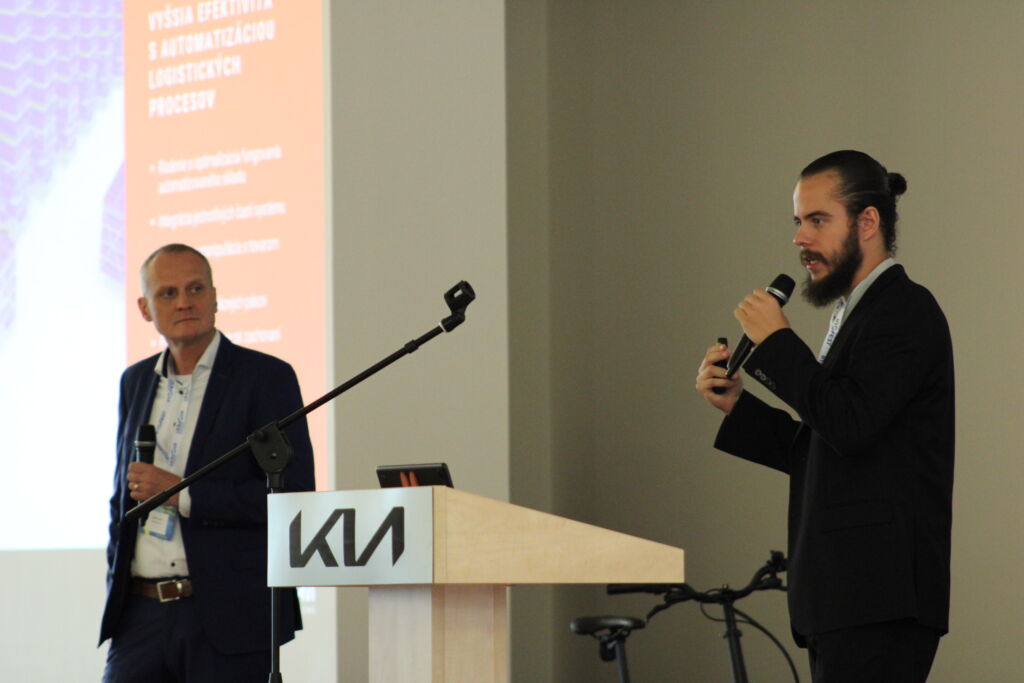The pilot project “Space for V4” creates a platform to foster collaboration among various stakeholders in the space industry, research, and business.
“The V4 region, and especially Slovakia, has a fantastic technological foundation to engage in the space sector. However, the main challenge lies in the relatively small ecosystem, which limits activities. The space industry has yet to reach critical mass. Therefore, the most important steps are to educate the wider public, help companies outside the space sector understand this business, and build connections beyond the sector,” explains Igor Žaček, who is behind projects such as Ecocapsule, Nice Visions, and the Vytah.Conf conference.

Strengthening collaboration among small and medium-sized enterprises (SMEs)
The main goal of the “Space for V4” project is to strengthen collaboration among small and medium-sized enterprises (SMEs), research institutions, startups, and other stakeholders in the field of space technologies and the space economy.
The initiative supports regional development, enhancing the competitiveness of V4 countries in the global space industry.
“I see the potential of this project particularly for Slovakia. It’s no secret that we have some catching up to do. It’s great that we can learn from more experienced countries. Sharing know-how and knowledge is our driving force and saves us time that would otherwise be spent on independent research and progress,” says Pavol Pecho from the University of Žilina. “I believe Slovakia will match its neighboring countries in the coming years and advance as a leader in certain areas of space research. That is my dream and vision,” he adds.
New opportunities for commercialization and knowledge sharing
The project aims to create opportunities for the commercialization of space technologies, support cross-sector collaboration, and enable the sharing of knowledge and inspiration across industries such as engineering, automotive, telecommunications, healthcare, and agriculture.
It also supports startups and innovative initiatives in the space industry, fostering the growth of businesses and technological advancements. According to Pavol Pecho, grant schemes hold the greatest potential.
“By forming the right consortium with the private sector, industries can be effectively attracted, leading to the development of commercial solutions. We are also applying for a grant, and with well-structured collaboration, everyone benefits — research organizations, the private sector, and the state,” he explains.
Expected results
One of the main outcomes of the project will be an informal network connecting participants in the space industry across the V4 countries. This platform will facilitate the sharing of information and experiences, enabling faster technology transfer and collaborative research.
Additionally, this year will feature several workshops and conferences designed to foster collaboration among participants and create new opportunities for business initiatives and investments.
Among the key events within the project is the international conference Výťah.Conf 2025, the only event of its kind in Slovakia. Focused on the space industry, it offers a unique opportunity for networking and exploring the economic potential of space technologies
Zobraziť tento príspevok na Instagrame
Successful Case Studies
One of the main goals of the project is to identify best practices in the space industry within the Visegrad countries. A publication, set to be released in August 2025, will showcase successful case studies in satellite manufacturing, Earth observation, and space research. It will also outline strategies for attracting private investments to further develop the region’s space economy.
Some successful projects are already worth mentioning, such as the Slovak startup Groundcom, which is building a network of ground stations for satellites. “The most interesting aspect is their business model, which uses a concept similar to Airbnb, allowing ground station owners to monetize their unused time,” explains a project representative.
Pavol Pecho highlights projects like GRBAlpha and GRBBeta, satellites designed for gamma-ray burst detection. These were developed by Slovak companies and institutions, with GRBAlpha achieving excellent results during its operational time in orbit.
“I also consider companies like Spacemanic, M2M Solutions, and Needronix to be great successes. They conduct cutting-edge industrial research and produce world-class products,” Pecho adds.

Founders of M2M Solutions during their presentation at INOFEST 2024. Source: INOVATO
The “Space for V4” project will culminate at the INOFEST 2025 festival, where discussions will focus on the latest trends in the space industry and opportunities for collaboration among the V4 countries.
“The ‘Space for V4’ project is an initiative with the ambition to connect partners from the V4 region and explore opportunities for practical cooperation. By supporting innovation, research, and collaboration among various actors in this sector, the project can contribute to the development of the regional space economy and enhance the competitiveness of V4 countries on a global scale.
We also aim to encourage the involvement of non-space industrial companies, such as those in the automotive sector, which can leverage their expertise and experience in this progressive industry. This project is an example of how international collaboration can bring positive outcomes in technology and innovation for the Central European region,” explains Anna Čaplovičová, Executive Director of INOVATO.
“I see this project as a small seed that can grow into something bigger. For example, one of the activities is the creation of a database of companies in the region, which primarily focuses on identifying use cases for space technologies. This will provide us with a tool for easier education of businesses and individuals,” concludes Žaček.
Are you operating in the space economy or involved in research and development in this field? Add your information to our database and increase your visibility to potential partners from the V4 countries. Filling out a short form will open new opportunities for collaboration and innovation. You can find the form and more information about the project here: Visegrad Fund – INOVATO.
TEXT: Natália Stašíková
FOTO: INOVATO


